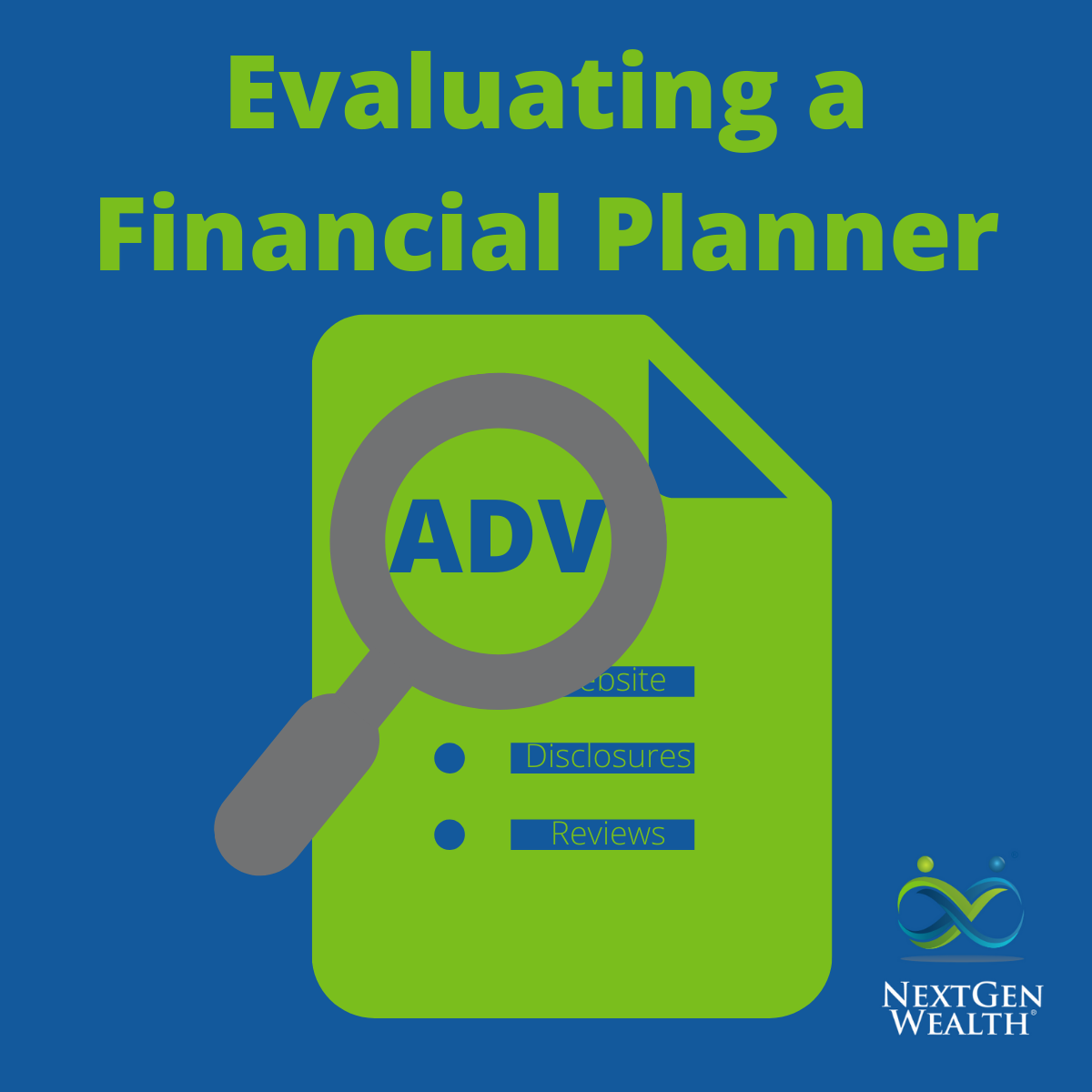How Do I Know a Financial Planner Won't Take My Money?
 The safety of your money is important when working with a financial planner for the first time. You worked hard to save for retirement. Protecting your assets may be why you’re hiring a financial planner in the first place.
The safety of your money is important when working with a financial planner for the first time. You worked hard to save for retirement. Protecting your assets may be why you’re hiring a financial planner in the first place.
The type of financial planning professional, compensation models, business structures, and legal protections are all important considerations. Not all firms manage investments the same - some don’t manage investments at all.
Should You Be Worried About This?
Many of our fears never happen. Most financial institutions and financial professionals do the right thing. Their careers depend on having a clean record.
For context, the Securities and Exchange Commission (SEC) lists 15,028 different advisors and firms registered. In 2021, the SEC reported 159 total allegations. This includes investment advisors and companies. That’s about 1% of all registered entities.
That’s not zero, but these infractions aren’t all for stealing money either. Very few of them were. You should still be cautious about who you trust with your money.
Most of us get downright upset over people being treated poorly. That’s why we’re in this business. We want you to have a trustworthy financial planner that always puts you first.
Can a Financial Advisor Steal Your Money?
Your financial planner may or may not even be capable of taking money from you - even if they wanted to. Custody is the technical term for who can hold and withdraw your money. The financial institution that holds your money is the custodian.
Sometimes, the advisor works for the custodian. Or your advisor my hold your investments at an independent custodian like Charles Schwab or Fidelity. Regardless, the financial planner may or may not have custody of your money.
Anytime an investment advisor can withdraw funds without your help, they technically have custody. There are regulatory requirements to be a custodian.
The custodian or advisor should not remove money from your account unless you authorize it. If you notice suspicious activity, confront them, and report any wrongdoing.
You Decide Who Has Access
You get to decide who gets to touch your money. You decide who has custody and who can make trades for you. The two main types of access are discretionary and non-discretionary.
Non-discretionary control means that only you can transact on your accounts. A discretionary account gives some ability to your financial planner to make trades for you. This allows the planner to rebalance your account, make trades, and implement tax strategies.
Documenting Access
You will complete several documents at the beginning of your relationship with a financial planner. One of these is your investment policy statement which outlines exactly what you allow your financial planner to do on your behalf. This will vary depending on what your financial planner will be doing on your behalf.
You will also have to complete documentation for the actual custodian which will specify who can do what. This may be different for each advisor, but most advisors have a set level of permissions that they need to complete the work you’re paying them to do.
Normal Transactions for Discretionary Control
Common transactions that we complete on your behalf are rebalancing and deducting fees for service. These are outlined in the investment policy statement. We will usually tell you before completing any large transactions.
You must be comfortable with the discretion your financial planner has over your money. At NextGen Wealth, we complete this during the onboarding process.
What Happens If We Stop Working Together?
If you decide to stop working with your advisor, you can transfer you accounts to a new advisor or simply remove your current advisors access in which your accounts will convert to a normal “retail” account in your name at the custodian. Your funds will never leave your control.

How to Evaluate a Financial Planner
Building trust begins before we ever start talking to each other. There are many tools that you can use to evaluate a firm. These include online resources and reviews, financial regulators, and initial meetings.
Online Resources
A firm’s online presence isn’t everything, but you can get a good idea of the firm’s professional style. We’re not talking about who has the prettiest website. A trustworthy firm should take the time to explain their processes and their fee structure.
Online Reviews
Online reviews can be helpful too. The saying goes, “where there’s smoke, there’s fire.” At a minimum, reviews can give you an idea of important questions to ask.
You never know who has given a review. Reaching out to someone you know that has given a review could be helpful. Reviews aren’t everything, but they are a good start.
Regulatory Filing
Checking regulatory filings is important too. This is the “broker check” or Form ADV. These are on The Financial Industry Regulatory Authority (FINRA) and Securities and Exchange Commission (SEC) websites.
Keep in mind that these are not very intuitive websites. They have basic search tools and one may link to the other for the information you’re looking for. When searching, you’re looking for what we call disclosures.
Regulatory Disclosures
Disclosures tell you if the advisor or firm had negative information reported by consumers or regulators. There is a formalized process for reporting disclosures. Disclosures carry more weight than negative reviews.
Regulatory disclosures don’t necessarily mean that the advisor or firm is bad. However, the advisor should be able to clearly explain what happened. Having a disclosure on an advisor’s record is the exception, not the rule.
Ask the tough questions. You need to be comfortable with any disclosures on file. Your ongoing relationship requires trust moving forward.
Meeting With the Financial Planner
After initial research online, it’s time to schedule an appointment. This is where you will get to know the financial planner better. This is a meeting to discover if you are a good fit for the firm and vice versa.
You need to have a good feeling about the relationship by this time. More importantly, you should trust your gut. If something feels off, it probably is.
Ask all additional questions before moving forward. If you don’t get a warm and fuzzy feeling, that’s not likely to change over time.
What’s This Fiduciary Thing All About?
The word fiduciary gets tossed around a lot, but we really take it to heart. Serving with integrity is the only way we do things here. We treat you like we would want to be treated.
The word fiduciary is a way of saying we’re going to put your needs first i.e., above ours. We eliminate all conflicts of interest and focus on what’s best for you – always. NextGen Wealth acts as a fiduciary, but we also treat you like family.
We plan to be a part of your life for a long time. We protect your future because our success depends on it! NextGen Wealth continues to exist only if you achieve your hopes and dreams. Without you, there is no us.
Final Considerations and Onboarding
Onboarding is the last step in the process of becoming a client. This is when your accounts are created with the custodian, final information is gathered, and our financial plan implementation begins. You should be totally comfortable with your financial planner by now.
If you have any remaining doubts, you need to stop and get clarity. At NextGen Wealth we invest a considerable amount of time into our relationship with our clients. If you’re unsure about something, we need to know so we can help.
You have a right to feel confident with the safety of your money. If not, it’s time to go another direction.
Best of luck in your journey to find the “right” financial planner for you.


